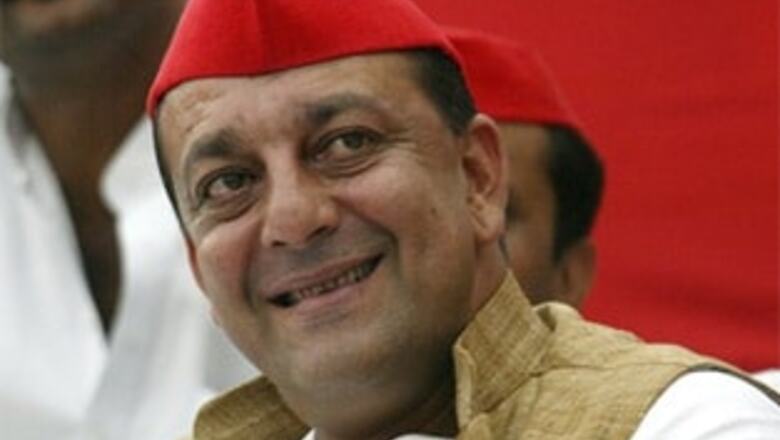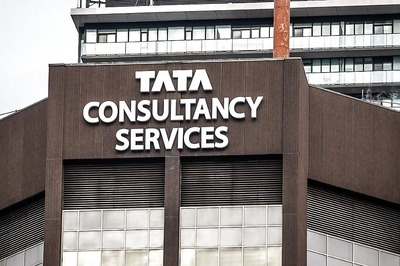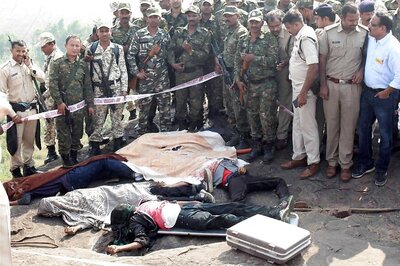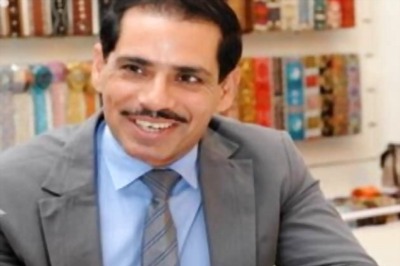
views
New Delhi: The Supreme Court on Monday reserved its verdict on film star Sanjay Dutt's plea for suspension of his conviction in a criminal case to enable him fight the general elections.
A bench of Chief Justice K.G. Balakrishnan, Justice P. Sathasivam and Justice R.M. Lodha reserved the verdict amid strong opposition from the Central Bureau of Investigation (CBI) and various civil society groups to Dutt's plea for suspension of his conviction for possessing illegal arms in the run-up to the March 1993 serial bombings in Mumbai.
Dutt, sentenced to six years in jail by a Mumbai anti-terror court, moved the court early this month seeking parity with cricketer-turned-Bharatiya Janata Party (BJP)parliamentarian Navjot Singh Sidhu, whose conviction in a case of unintentional killing was stayed by the apex court in 2007 to enable him contest elections.
As per electoral laws, a person convicted for a criminal offence and sentenced to jail for more than two years is barred from running for elections.
The Samajwadi Party wants to field Dutt from the Lucknow constituency, and he had already started campaigning there.
The apex court is likely to pronounce its judgement in a day or two.
The bench reserved its verdict after hearing a two-hour-long argument from various sides, including those of senior counsel Harish Salve, who made a strong case for suspending Dutt's conviction.
But the hearing took a dramatic turn towards its fag end when several civil society groups, represented by several senior counsels like former attorney general of India Soli J. Sorabjee, former additional solicitor general K.T.S. Tulsi and senior counsel Prashant Bhushan, put up a stiff resistance to Dutt's plea.
The three senior counsel opposed Dutt's plea contending that allowing him to contest the poll by suspending his conviction would open the flood gates for further criminalisation of the body politic and efforts to rid politics of criminal elements would suffer a permanent setback.
They argued that allowing Dutt's plea would lead to a deluge of similar pleas by "all sorts of convicted criminals" before courts all over India for suspension of their conviction in criminal cases and that would eventually lead to flooding of parliament and state legislatures with criminals.
Appearing for the CBI, Additional Solicitor General Gopal Subramaniam too opposed Dutt's plea arguing that various relevant laws do not empower the court to suspend the conviction of a criminal.
The courts, at most, can suspend the sentence, entailing the conviction, and not the conviction per se, which could only be set aside by a court only after detailed examination of the evidence against the accused, Subramaniam said.
He also contended that Dutt's case cannot be compared with that of Sidhu, who had first won an acquittal from the lower court.
The law officer said when the Punjab and Haryana High Court convicted Sidhu, setting aside his acquittal, Sidhu was already an MP and did not incur immediate disqualification owing to the conviction.
He could have continued as MP simply by challenging his conviction by the high court, argued Subramaniam, adding that Sidhu, however, quit as Lok Sabha member and then came to the apex court for suspension of his conviction to fight election for the same seat that he had quit.
The courts should sparingly suspend the conviction of a criminal, said Subramaniam adding that the apex court should utilise its inherent power only in cases where the principles of natural justice have not been followed.
It should not use its power to facilitate a criminal to contest election, said Subramaniam.
Earlier arguing for Dutt, Salve sought suspension of his conviction saying that he had ended up procuring illegal arms from an underworld don under the genuine fears that his house and family were likely to be attacked by perpetrators of the communal riots in the metropolis after the demolition of the Babri masjid at Ayodhya in Uttar Pradesh.
Salve said that even the trial court convicting him on the charges of possessing illegal weapon has noted that he had no knowledge of the larger criminal conspiracy to bomb the metropolis.


















Comments
0 comment